Search
Search Results
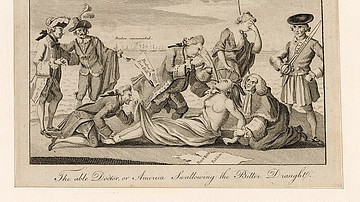
Definition
Intolerable Acts
The Intolerable Acts, also known as the Coercive Acts, were five laws passed by the Parliament of Great Britain in 1774 to punish the Thirteen Colonies of British North America for the Boston Tea Party. Though the acts primarily targeted...
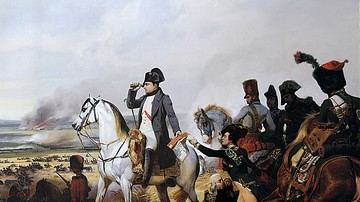
Article
Battle of Wagram
The Battle of Wagram (5-6 July 1809) was one of the largest and bloodiest battles of the Napoleonic Wars (1803-1815). It resulted in a pyrrhic victory for French Emperor Napoleon I (r. 1804-1814; 1815) whose army crossed the Danube River...
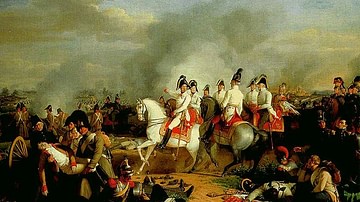
Article
Battle of Aspern-Essling
The Battle of Aspern-Essling (21-22 May 1809) was a major battle of the Napoleonic Wars (1803-1815). It saw an Austrian army under Archduke Charles defeat a French army led by Emperor Napoleon I (r. 1804-1814; 1815) as it attempted to cross...
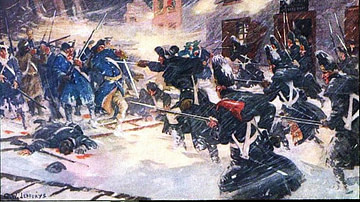
Article
American Invasion of Quebec
The American invasion of Quebec (September 1775-June 1776) was a military campaign undertaken during the American Revolutionary War (1775-1783). Hoping to induce the Province of Quebec to join the rebellion, the Second Continental Congress...
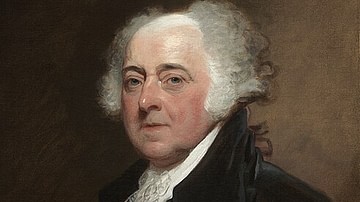
Definition
John Adams
John Adams (1735-1826) was an American lawyer, statesman, and diplomat who was a prominent leader of the American Revolution (1765-1789) before going on to serve as the first vice president (1789-1797) and second president of the United States...
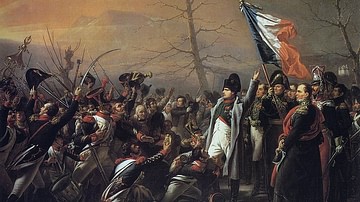
Definition
Hundred Days
The Hundred Days refers to the second reign of French Emperor Napoleon I, who unexpectedly returned from exile to reclaim the French throne. It encompasses Napoleon's triumphant return to Paris on 20 March 1815, his climactic defeat at the...
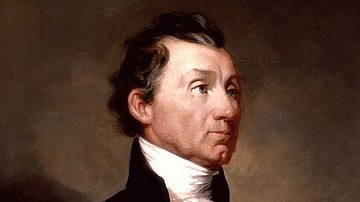
Definition
James Monroe
James Monroe (1758-1831) was an American statesman who served as the fifth president of the United States (1817-1825). The fourth president to belong to the so-called 'Virginia Dynasty', and the last of the generation of the Founding Fathers...

Definition
Thomas Jefferson
Thomas Jefferson (1743-1826) was an American lawyer, statesman, philosopher, and a Founding Father of the United States. A prominent figure of the American Revolution, he wrote the Declaration of Independence and later served as the first...
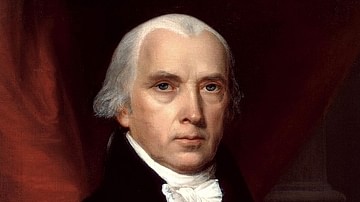
Definition
James Madison
James Madison (1751-1836) was a statesman, diplomat, and a Founding Father of the United States, who served as the fourth US president from 1809 to 1817. He played an important role in the drafting of the United States Constitution and the...

Definition
Whiskey Rebellion
The Whiskey Rebellion was a violent uprising that occurred in western Pennsylvania in 1794, in opposition to an excise tax on liquor. After anti-tax protestors assaulted federal tax collectors and threatened to march on Pittsburgh, President...